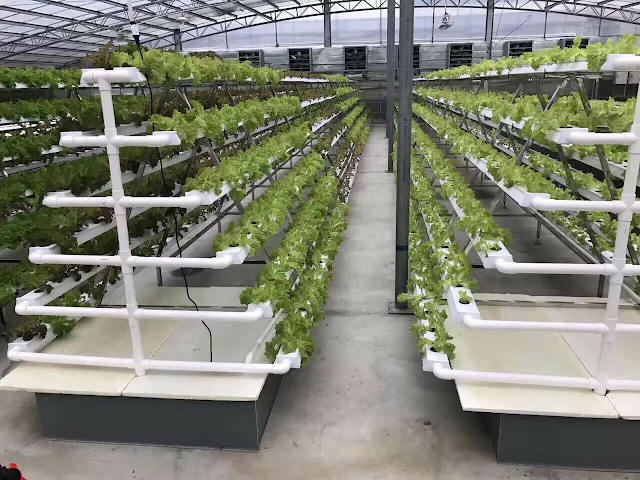Discover the Benefits of Hydroponic Greenhouse Farming

Imagine walking into a lush, vibrant garden where plants float in mid-air, roots dangling without a speck of dirt in sight, and vegetables grow twice as fast as they would in your backyard.
This isn’t a scene from a futuristic movie; it’s a snapshot of what’s happening today in a hydroponic greenhouse.
This innovative approach to farming not only redefines what it means to grow food sustainably but also opens doors to year-round cultivation, no matter the climate outside.
What Is a Hydroponic Greenhouse?
A hydroponic greenhouse utilises a soil-less farming technique where plants are grown in a nutrient-rich water solution, allowing for greater control over environmental conditions and resource use.
Unlike traditional farming, hydroponics in a greenhouse setting doesn’t rely on vast fields or high amounts of water and pesticides. Instead, everything the plants need is delivered directly to their roots in a controlled environment.
Why Choose Hydroponic Greenhouse Farming?
Hydroponic greenhouse farming offers a myriad of advantages that can benefit not just the environment but also the farmers and consumers. Here are some compelling reasons to consider this innovative farming method:
Optimised Resource Use
One of the most significant benefits of a hydroponic greenhouse central coast is the drastic reduction in water and nutrient usage. The closed system means that water is recycled within the greenhouse, reducing the need for fresh water. It’s estimated that hydroponic systems use up to 90% less water than traditional soil farming.
Year-Round Production
Thanks to the controlled environment of a hydroponic greenhouse, crops can be grown year-round, eliminating the dependency on seasonal changes. This constant production cycle allows farmers to produce more food from the same square footage compared to traditional farming methods.
Faster Plant Growth
The direct delivery of nutrients to the roots and controlled conditions such as lighting, humidity, and temperature allow plants in a hydroponic greenhouse to grow up to 50% faster than they would in soil. This means quicker harvest cycles and fresher produce to the market and your table.
Reduced Use of Pesticides
Since hydroponic greenhouse systems are typically enclosed, there is a significant reduction in the occurrences of pests and diseases. This controlled environment allows for minimal to no use of chemical pesticides, leading to healthier, organic produce.
Space Efficiency
Hydroponic greenhouse farming is particularly beneficial for urban areas where space is limited. These systems require significantly less space than traditional farming because plants can be grown vertically, maximising the production per square foot.
Climate Control and Adaptation
Climate change poses a significant threat to traditional farming methods, but hydroponic greenhouses offer a viable solution. They can withstand the changing climate conditions by creating an optimal growth environment independent of external weather patterns. This means stable food production even in areas affected by extreme weather events.
Is a Hydroponic Greenhouse Right for You?
Whether you’re a commercial farmer looking to maximise crop yields, a hobbyist seeking a year-round gardening solution, or a consumer interested in sustainable produce, a hydroponic greenhouse could be the perfect solution.
By integrating advanced technology with farming, these systems not only conserve resources but also offer a cleaner, more sustainable way of food production that can be localised, even in urban settings.
Embracing the Future of Farming
The future of agriculture is here, with hydroponic greenhouse farming leading the charge towards a more sustainable, efficient, and productive way of growing food.
As our global population continues to grow and the demand for fresh, local produce increases, the importance of adopting more sustainable farming practices becomes more critical.
With the benefits clear and the results promising, it’s time to consider how a hydroponic greenhouse central coast can not only meet the world’s food needs but also protect the planet for future generations.
In embracing hydroponic greenhouse farming, we are not just cultivating crops; we're cultivating a healthier, more sustainable world. Whether you are a consumer, farmer, or curious observer, the role of hydroponics in agriculture is an exciting development worth watching—and perhaps even getting involved in.


Comments
Post a Comment